FYI, the publication has a new name.
I was going to write an article on something else but I came across this story about Marques Brownlee and got hit with a stream of conscience so I thought it’d be a good fit for Part 3 of this series.
The general theme of the Rap Mags and Digital Dollar$ series, including Part 1 and Part 2, has been to illustrate the opportunity in digital media. This opportunity exists not only for traditional media players, but for nontraditional players such as artists, influencers, and creators of all types as well.
IT’S ALL THE SAME
In this article, I’m going to get more specific and switch lanes a bit.
When it comes to opportunity in digital media, an example of someone who is killing the digital media game is Marques Brownlee (aka ‘MKBHD’). MKBHD is someone who has made his name, and carved a lane, reviewing tech products. He started making YouTube videos, as a kid, as early as 2008; and now has almost 5 billion views on Youtube, 20 million followers on YouTube, 5 million followers on Instagram, over 6 million followers on Twitter, and 2 million followers on TikTok.
From what I’ve gathered, he also has a subsidiary (The Studio) which produces his content and sells merchandise. So while he may not be rapper, he’s a creator; and, like many creators, music (and rap) is an influence on his life.
It’s all the same at the end of the day.
And that’s what this series has really been about. It’s about the question “how do influencers leverage their influence and make it work in a manner they desire; rather than being dictated by platforms and entities that may not align with the vision they have for themselves?”
As it relates to MKBHD, he recently launched an app.. and this launch led to a bit of digital controversy; but, let’s back up..
I’ve written before about the opportunity that exists for creators and influencers in technology. In my opinion, what many people miss is that there’s opportunity for creators and influencers to start software companies, and other ancillary ventures. Specific to software, while there are debates about whether software code and software programming are being commoditized (due to advancements in tech) I think everyone would agree that it’s easier and cheaper to develop software than it was 30 years ago.
Additionally, the reduced cost and ease of software development means that it’s more difficult to scale software companies. It’s similar to what we see in the music business. The bar of entry has been lowered, more people are creating and distributing music (or software), which increases the volume of music (or software) in the market; and, as a result, makes it harder for artists or software companies to succeed.
So there are a few solutions, depending on how you look at it. One solution is for software companies, and others, to develop marketing and go-to-market strategies, which often include paying influencers (famous people) to endorse and market their companies and products in order to reach a wider net of people. This is traditionally the way that it’s worked; or as Kanye articulately put it in his interview with BBC.
Another way is for influencers and creators to change the paradigm, reverse the working order, and build and develop their own companies (or apps); leveraging their audiences - either in partnership with companies, or by themselves. This is especially true when we speak about the top 5% to 10% of creators and influencers who have acquired > 90%of their respective market share.
Instead of being beholden to software platforms and other corporations, creators and influencers now lead corporate and software development and strategy. This leads us to the latest controversy.
Recently, MKBHD released an HD wallpaper app (‘Panels’) which has an ad-free version, available for $12/month and a free-ad supported version. On release, Panels, reached #4 on Apple App Store’s Photos & Video list. His release came with many criticisms. Much of the online criticism was about the fact that MKBHD has spent his career critiquing tech products and didn’t come out with something more complex, the fact that the (paid) version of the app charges people $12 for something as simple as wallpaper; in addition to the disclosed data privacy practices of his app, which purported to collect location data from users. You can read more about it on Forbes.
This article really isn’t about the criticisms though. If you like, you can read more the criticisms at the Forbes link above or through a quick search on Twitter. I won’t spend much time here, especially when it seemed like much of the criticism was overkill, and was really based on the fact that many didn’t like some of the tech product reviews he’s given in the past, and viewed this as an opportunity to “get their lick back”.
Fair enough.
But it was ironic that some of the people complaining about ‘Panels’ privacy policy were complaining… on Twitter. Here’s Twitter’s privacy policy if you’re curious…
As a side note, the backlash about data privacy sounds similar to the backlash Jay Z and Samsung received (which I covered in Part 1).
To be balanced (and if you ask me), I wouldn’t pay for MKBHD’s app; but I don’t pay for a lot of things. Also, and in my opinion, many apps and products are time wasters and add minimal value to our lives. This isn’t limited to tech products. Do people really need a $2k Balenciaga trash bag? Do people really need a $600 Gucci belt? Or do people buy them because of the symbol and “meaning” items like those confer upon them?
At the end of the day, all business is about adding value to others, whatever that value may be; and if people find value in what you produce, then cool.. if they don’t, then they should move around. That’s life.
But this article isn’t about that. This article is about the point that I think many missed in this app launch.
PROJECT: INFLUENCE THE INFLUENCERS
To get straight to the point, this article is about the opportunities that top creators have today; and the ‘Panels’ app, regardless of what people may think, is evidence that the sky is the limit. Creators can now move beyond merely being “creators” and into becoming executives and founders in their own right.
Specifically, one idea that I have is that MKBHD could start his own firm representing other influencers. Let’s call it MKBHD Management.
Now, this is not a detailed business plan with complex financial models; it’s an idea or vision of what I think MKBHD, and other similarly situated creators, can create if they choose.
In my mind, it makes sense for a few reasons: mostly because, he’s already representing himself; in that, he has successfully entered the top 5% of creators in this space, even appearing on an ABC special on AI with Oprah; and alongside Bill Gates and Open AI CEO, Sam Altman. He knows what it takes to succeed as a creator, he has succeeded as a creator, and he can help show others how to do the same.
There’s also proof of concept: Issa Rae leveraged her platform to create Color Creative, a management company for creators, Taylor Swift has owned her own management company, 13 Management, for several years now; and several other examples exists in the media space of creators and influencers consolidating their influence to exert more control over their own careers, and helping others do the same (e.g. Beyonce, Jay Z, Bruno Mars, to name a few).
So how can he do this practically? Well, first let’s address the questions of why it wouldn’t work (for the naysayers).
Roadblocks
MKBHD Management may not work for the following reasons:
Financial Constraints - Nothing happens without money. There’s the question of how to fund this business; and, perhaps, MKBHD is not excited about the prospect of having to fund it himself, even initially.
Time Constraints - It may be difficult for MKBHD to find the time to launch a management company while he has other commitments; including, but not limited to, his YouTube channel. Given that he’s been doing this since 2008, he may be more passionate about the creative side of things; and may not want to get involved in the business side of things. We see this dynamic, often, in the music business; where many artist-led label imprints fail for this reason.
Brand Constraints - Additionally, MKBHD might be concerned about the perception of conflict of interests if he reviews products and/or brands which are endorsed by MKBHD Management clients. MKBHD has built his personal brand on honest and sincere takes; and he may be averse to the prospect of anyone calling into question the integrity of his personal brand and YouTube channel.
Solutions
Now that we’ve addressed some of the reasons why this may not work, let’s tackle why it will work.
Financial Constraints - I don’t see this as an issue for a few reasons. One, if I had to guess, MKBHD is making (or should be making) well over 7 figures a year, and possibly 8 figures, from his brand. Additionally, the overhead involved in starting a management company is very minimal. To start, all you need are relationships and personnel who can locate opportunity and help clients steward those opportunities. This may look like someone to lead client development, someone to handle brand relationships, someone to manage client relationships, and an assistant to help facilitate day-to-day processes. As a startup, one person and maybe a virtual assistant can do all of that; in total, he would likely be looking at less than $200k in overhead for staff, initially.
Secondly, even if MKBHD does not want to start the company with his own cash; there are different ways to fund the business: (1) he can find a co-founder to run the company with him (who will invest alongside him); or (2) he can seek outside capital. This could be in the form of a bank loan or private equity/venture capital investment. There are pros and cons to each path; which I won’t touch on here, but if I were MKBHD: I would start this in stealth mode, capitalize it myself (or with a co-founder) or look for a bank loan collateralized by my YouTube channel.
I would see this as a smart bet if I were a banker because there have been several YouTube channels that have been acquired for millions of dollars. The recurring revenue generated by YouTube videos and the underlying ads provide a predictable revenue stream against which a loan can be backed. It’s similar to the alternative financing companies we see in film, television, and music; and MKBHD, again, has proven to be in the highest tier of digital creators (in terms of revenue).
Time Constraints - Again, going back to the ability to find a co-founder and hire a day to day manager and possibly an assistant over time, MKBHD would not need to be involved in the day to day management of clients or operations. Rather, he can leverage his profile and network by facilitating introductions between his clients and brands, possibly appearing on their videos, and enabling strategic counsel to his clients. MKBHD Management could also leverage ‘The Studio’ to produce original content for MKBHD Management clients.
Brand Constraints - I don’t see this as an issue. Marques is a private citizen and has the ability to run his company the way he sees fit; and there’s generally nothing which legally prevents him from reviewing a product and owning a company which also represents a creator who endorses that same product. In terms of perception and relationships with brands, I think this is minimal because MKBHD has already publicly stated that he does not accept payments to review products. I believe that further mitigates the risk.
Now, someone might say “ok sure, but Apple (or any other company) might still pay an MKBHD Management client to endorse the new iPhone as a way of getting into Marques’ good graces”. Sure, but record labels and professional sports teams do the same thing with entertainment lawyers and sports agents who represent a large segment of their respective markets.
What’s important here is that MKBHD Management implements transparent policies as to the operation of MKBHD Management, clarify internal staff responsibilities, and execute iron clad contracts with corporate/brand partners and clients.
On the point of contracts, that’s the easy part. Any attorney worth their salt will be able to draft effective contracts. The hard part is building this thing; but some points that MKBHD Management will want to include in their contracts with clients are:
Commission - identifying what the management company gets paid and from which sources of client revenue;
Exclusivity - ensuring that MKBHD has exclusive representation rights; and
Term - determining how long the duration of MKBHD Management’s term of representation will be (inclusive of any extensions).
As it relates to the contracts with brand/corporate partners, clauses to be aware of include:
Deliverable - this clause determines what the talent will be doing for the brand. In terms of endorsement, or social media, deals there are often detailed terms as to what will be created and/or posted, the format and specifications of the endorsement, and the number of revisions the brand has before the deliverable is published;
Intellectual Property / Ownership - these terms govern which party owns the end deliverable, in addition to clarifying the ownership rights related to the underlying IP (e.g. the brands trademarks/copyrights vs. the talents trademarks/copyrights);
Legal Compliance - influencer agreements often include FTC guideline requirements; which require the talent to comply with FTC advertising rules (such as the requirement for talent to disclose when they’re being paid to endorse a product); and also hold the talent responsible if the FTC, or other government agencies, comes after the brand (or the talent) as a result of noncompliance
See Kim Kardashian’s $1.26 million settlement with the SEC for failing to disclose “that she was paid $250,000 to publish a post on her Instagram account about EMAX tokens, the crypto asset security”; and
Indemnification and Limitation of Liability - These clauses, essentially, determine where and how each party will be responsible for defending the other party, and what the maximum liability of each party will be.
As I said, however, the contracts are the easy part, and any firm (such as mine) could advise on legal and contractual terms. Additionally, MKBHD Management will want to retain a CPA to advise on financial and tax matters.
In short, these are the broad reasons for why MKBHD Management could work; but I think he could take it even further.
THE FUTURE
For instance, and in terms of corporate structure, Marques could structure his company as follows:
MKBHD Holdings - The holding company for all MKBHD properties and ventures
MKBHD Management - The management arm of Marques’ enterprise which manages MKBHD and other creators.
The Studio - The production arm of MKBHD Management which produces for MKBHD and other MKBHD Management clients.
MKBHD Ventures - The venture capital arm of MKBHD Holdings which invests individually, and along side other venture capital and private equity firms in the creator economy and tech space.
This last piece is very interesting to me. Let me explain what I mean.
If we think about revenue, and what MKBHD Management could expect to do in revenue, let’s look at the following. If what I’ve seen is accurate, moderately successful to top influencers can expect to see $500k, and that’s conservative. Let’s say MKBHD Management signs 10 clients making on average $500k, that’s $5m in gross client revenue. If MKBHD Management charges 10% as its commission, that’s $500k in annual gross revenue. Let’s say MKBHD Management doubles its roster then that’s $1m in gross revenue. If MKBHD Management focuses on influencers who are making, on average, $1m; and represents 10 or 20 clients, then those figures double ($1m and $2m).
Let’s also say the total overhead for MKBHD Management at $1m annually is $300k, then that’s $700k in profit (before taxes). That’s a solid business, maybe not earth shattering; but solid. Better yet, it provides another source of income and sets him up for a post YouTube career (if he so chooses); with the potential of a lucrative exit. If his business grows steadily, in ten years, he could be looking at a multi-million dollar exit; particularly given the acquisition and consolidation activity which frequently occurs in the talent representation space; and these are conservative numbers which don’t take into account outside investment boosting the valuation of MKBHD Management.
Further, even more opportunity exists in MKBHD Management’s potential ability to produce content for other creators, and invest in other creators (or client businesses). Let’s say Marques doesn’t want the headache of managing creators (I wouldn’t blame him), and only wants to invest in creators then there’s opportunity there as well.
Why is there opportunity?
Well, one roadblock I didn’t mention earlier is market competition. As Puck News noted, when it comes to the talent agency space “the top three agency players now control about 85 percent of talent”, and there’s belief that a “larger consolidation opportunity over the coming 5-15 years” is imminent as it relates to talent managers”.
The point here is that when you view the competition in talent representation, it’s steep; but here’s the kicker - if I’m a successful creator, influencer, or talent why wouldn’t I want to be represented by someone (with the infrastructure) who has successfully beat out 95% of other creators? The agents, managers, and lawyers haven’t done it, MKBHD did it. Why wouldn’t I want his advice; and if I’m a private equity firm, why wouldn’t I want to be in the MKBHD business; particularly when the odds are that, at least, 90% of creators won’t amass the following he’s amassed?
Some may say this is a pipe dream, and like I said, this isn’t a fully fleshed out business plan; but I do have more receipts.
Seeing Around Corners
While many had a lot to say about MKBHD’s app, I didn’t see the same chatter about his 2024 deal with Ridge, a multimillion dollar accessories company.
According to Forbes, after the CEO of Ridge made a $1m offer for a creator to join the company, the company “signed a multi-year deal with [MKBHD]”; which included “a ‘Chief Creative Partner’ title, equity in the company, a board seat, and creative input on Ridge’s product roadmap and content strategy”.
Ridge saw the value in MKBHD’s ability to elevate their company; and instead of simply doing an endorsement deal, they effectively treated him like an executive (and investor).
In discussing the rationale behind this partnership, Ridge’s CEO, Sean Frank had this to say:
“We were talking to all these big talent agencies, and what you end up getting is three layers of agents, a $4 million deal for a one-time photoshoot, and we’re like, ‘This is so disconnected.’”
That’s the opportunity that exists, today, in digital media.
In closing, the greater point of this article is not that MKBHD necessarily has to start a management company or that it’s the only (or most) profitable path for him; the point is that we’re living in a new day where many of the old limits only exist if creators allow them to exist. Creators and influencers, who break through, have the potential to flip the table and shift the paradigm.
Tips:
Do it for the love;
Develop a transferrable skillset;
Understand your audience and core competencies; and
Understand the financial and legal landscape
In reading about MKBHD, one thing that I noticed was that he started his product review channel simply because he was interested in it; and he kept doing it even when no one was watching or cared, building an influential platform from the ground up.
Secondly, along the way, he developed a skillset in producing content, communicating product to consumers and general audiences, and in building a media channel; skills that are transferrable to other corporate entities.
Lastly, he’s shown an awareness and shrewdness of his influence; as well as the financial and legal landscape, making shrewd moves along the way.
Many people had much to say about his app; and maybe some are right and maybe some are wrong, but most have never created an app that hit the top of the Apple Store charts. As Jay Z once said, “everyone can tell you how to do it, they never did it”.
In my view, it’s not even about the app, I believe the app is a test run; similar to the Jay Z app collaboration with Samsung (which preceded the acquisition and launch of Tidal).
In short, I think we’re going to see more creators like MKBHD and Jay Z, not less.
Until next time.




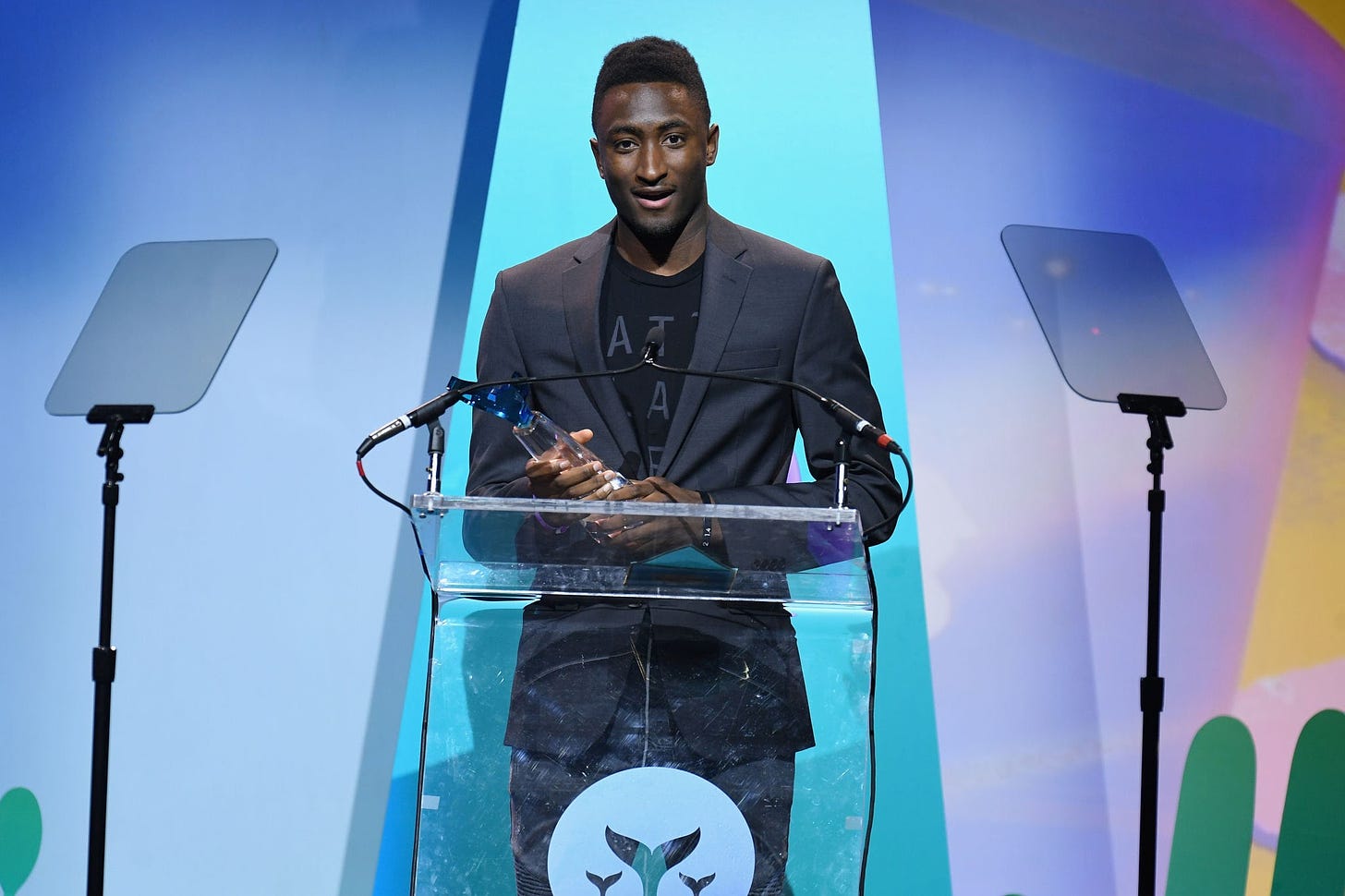
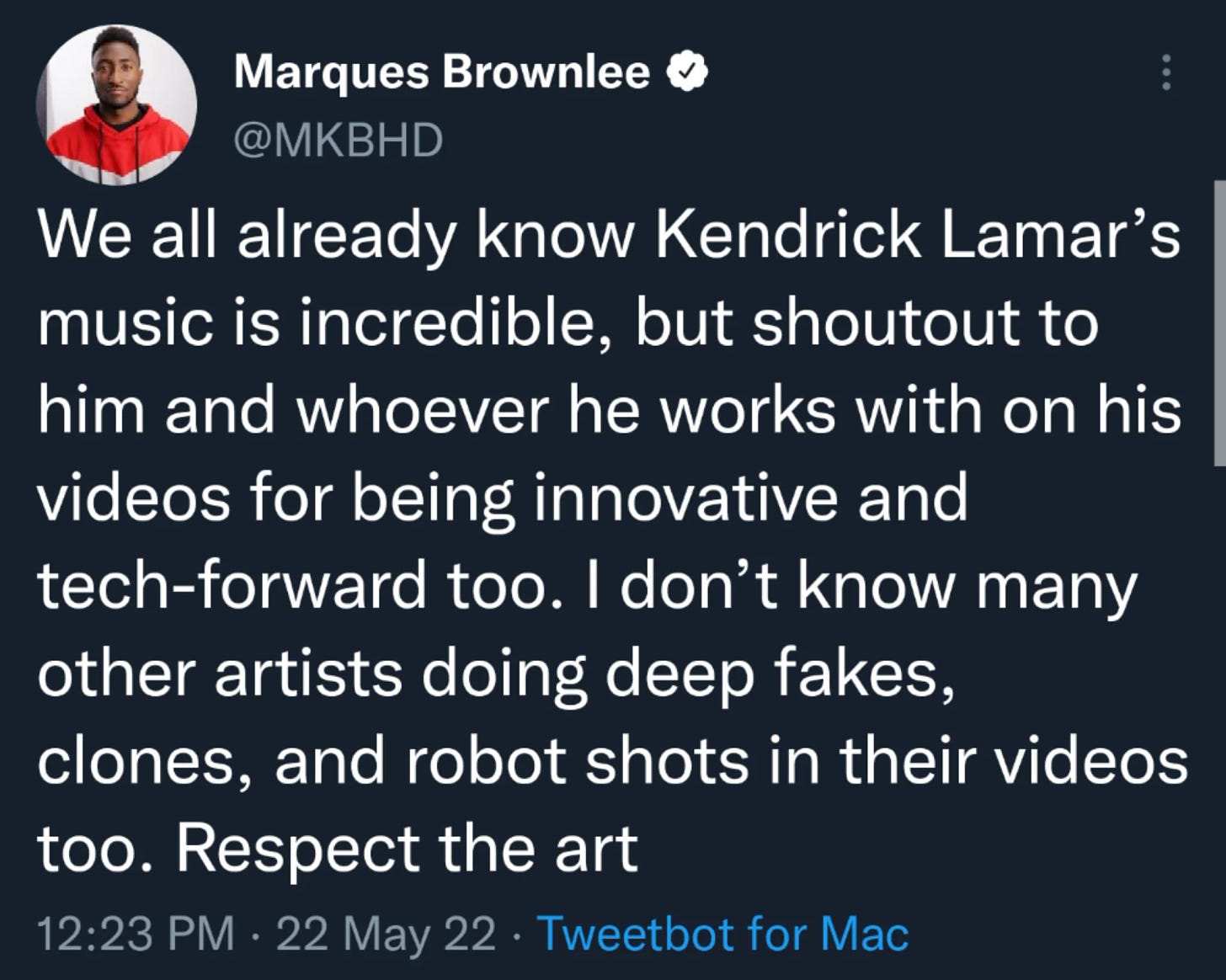


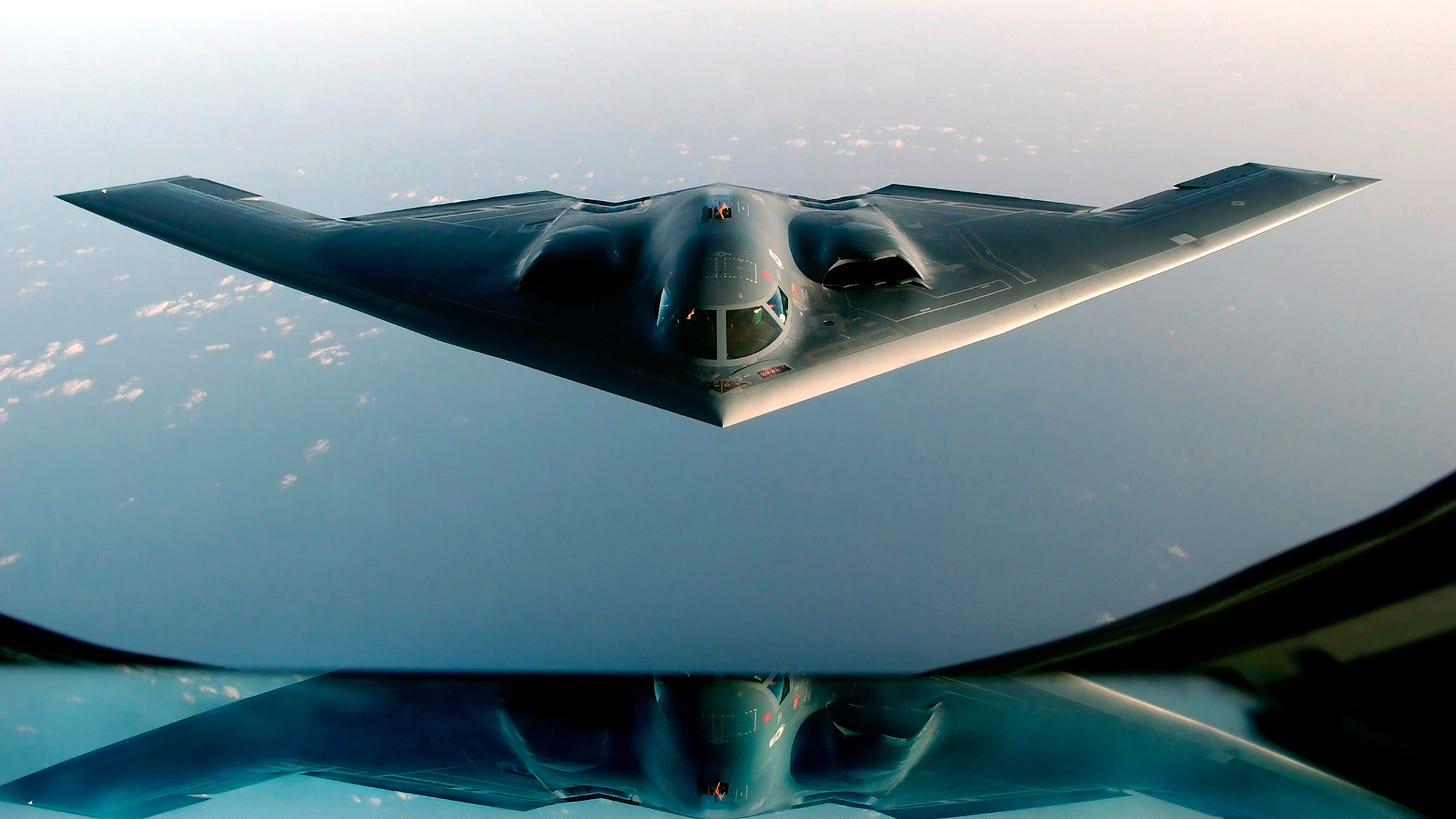
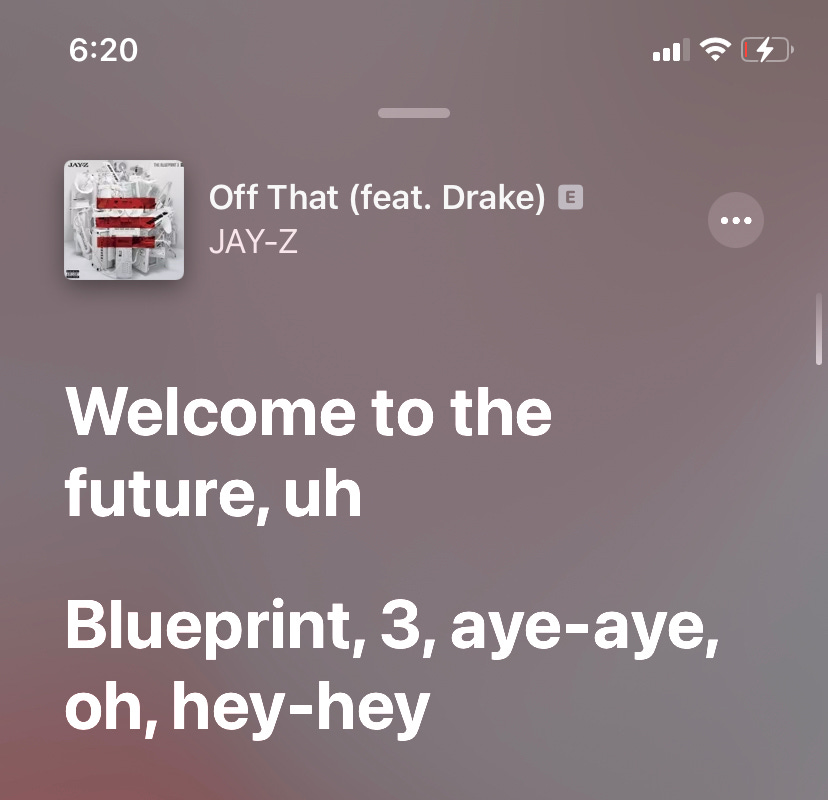
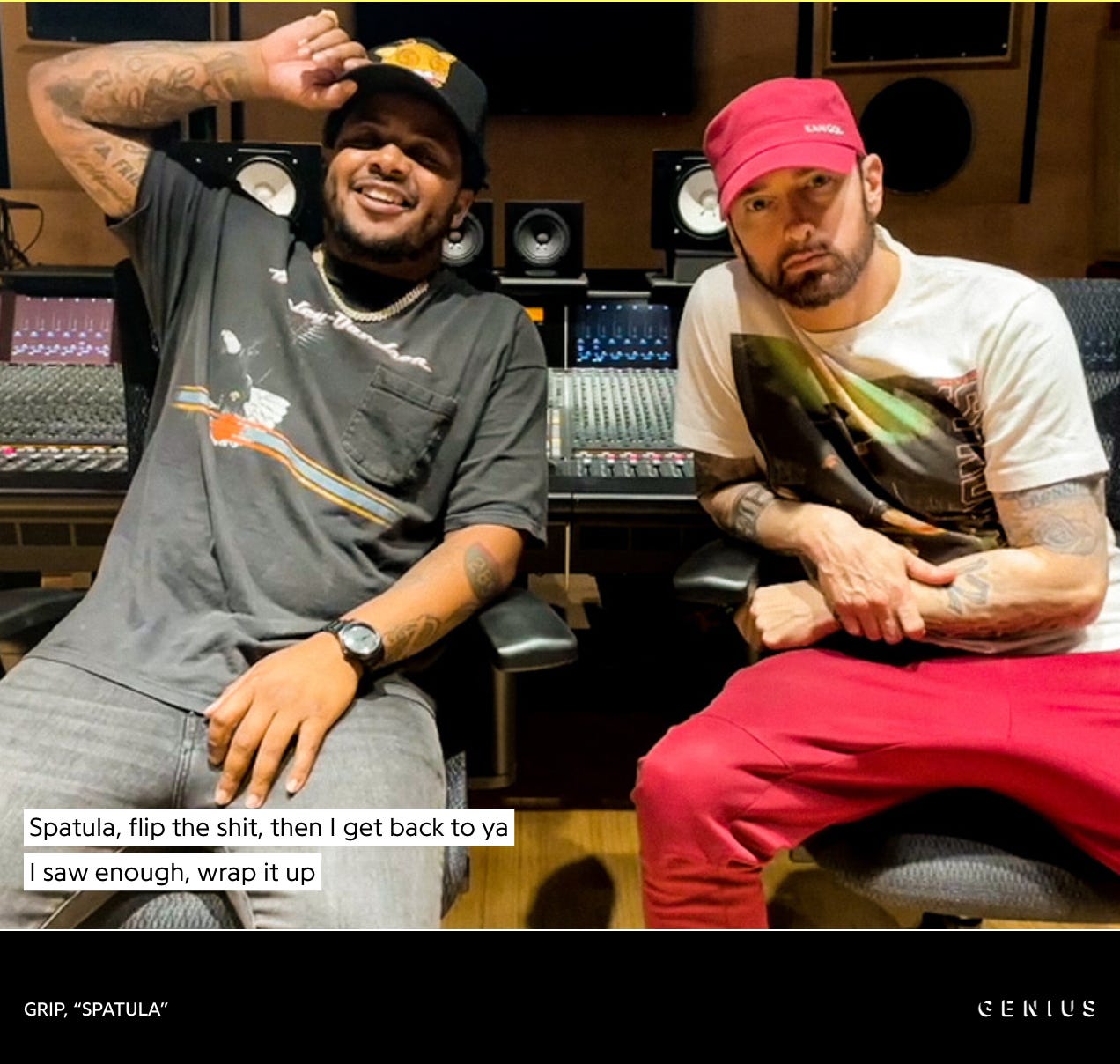
Really well thought out article.
Never thought about the "test run" aspect of it. Definitely makes more sense from that aspect.
Makes you wonder how popular a real app that isn't just a wallpaper app would do.